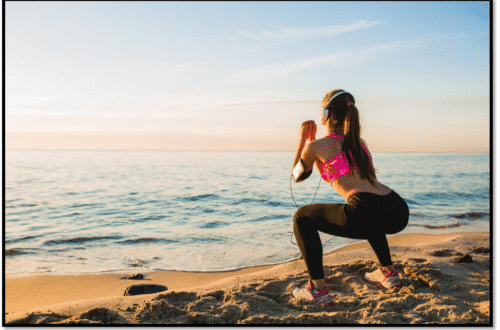Stress, anxiety and depression are very common in today’s fast-paced life. And for a lot of us, it’s impossible to make time to see a counsellor or therapist. That’s where mental health apps can be so useful. These apps offer support, self-care tools and even therapy options you can access directly from your phone. But with so many apps available, it is difficult to know which ones really work.
In this guide, we’ll talk about mental health apps that experts actually trust — as well as the best apps according to users. These apps have strong features, a nice user experience and have helped many people improve their overall mental health and well-being.
Why Use a Mental Health App?
Mental health apps are no substitute for professional therapy, but they can be a great place to work on processing a complex array of feelings. Some reasons that people use them include:
- Self-Help Tools – Exercises such as meditation, journaling & breathing exercises are one of them.
- 24/7 Availability – You can access them anytime and anywhere.
- Affordable – Most apps are cheaper than regular therapy.
- Privacy – You can work on your mental health without telling anyone.
Best Mental Health Apps That Actually Work
1. Headspace
Headspace is among the most widely used meditation and stress-relief apps. It provides guided meditations, sleep sounds and breathing exercises. The app is massive and extremely easy to use even for beginners and people of all ages.
ideal for: Stress, anxiety, sleep support.
2. Calm
Calm is another popular app, aiming to help users relax and practice mindfulness. It features relaxing music, bedtime stories and guided meditation. Users say they sleep better and experience less daily stress using Calm.
Ideal for: Stress relief, better sleep quality, anxiety reduction.
3. Moodfit
Moodfit is a fitness tracker for the mind. It guides you to monitor your mood, set goals for yourself and engage in daily mental exercises. It also includes tools for gratitude journaling and breath-work.
Best for: Tracking your mood, finding motivation to take on your day, managing your stress.
4. Talkspace
Connect with a licensed therapist online with Talkspace. You can use the app to chat, video call or send voice notes to your therapist. (That makes therapy more available to those who can’t make it to a clinic.)
Best for: Getting therapy from actual professionals.
5. BetterHelp
BetterHelp is one of the leading online therapy platforms. We match you with a therapist suited to your needs. The two of you can connect via video, phone or messages. The app is also quite popular in India, especially among young professionals.
Good for: Counseling, long-term therapy, personal support.
6. Sanvello
Sanvello is based on clinically validated techniques such as Cognitive Behavioral Therapy (CBT) to help reduce symptoms of stress, anxiety and depression. It offers guided trips, mood tracking and community support.
Ideal for: Anxiety, depression, and stress relief.
7. Happify
With a name like Happify, it’s all about creating happiness. It includes fun exercises, games, and challenges grounded in positive psychology. These acts help you to think about yourself in a positive way and eliminate all negative thoughts.
Fit for: Positivity, confidence boosting, decreasing negative thoughts.
8. InnerHour (Made in India)
InnerHour is an Indian mental health app designed by a team of psychologists. You get self-care plans for stress, sleep, depression, and anxiety. The app also connects you with licensed therapists.
Best for: Indian users, localised therapy support, self care.
How to Pick the Right Mental Health App
- Search for an app based on scientific research or authored by mental health professionals.
- Select apps for your needs, such as stress, sleep or therapy.
- Refer to reviews and ratings before downloading.
- Opt for the free features before you start paying penance on the premiumplans.
Final Thoughts
Our mental health matters just as much as our physical health. If you’re dealing with stress, anxiety or depression, a solid mental health app might be a good way to start feeling better — whether you can see a therapist regularly or not. Apps like Headspace, Calm, InnerHour and BetterHelp have shown efficacy in helping several people across the globe.
Keep in mind: These apps are useful tools, but are not a substitute for therapy. If your issue is substantially serious, you should always get in touch with a licensed therapist or physician.
We should tend to our minds as a daily practice. Do the small things right, find the right app, and you’ll see positive change in your life.
FAQs on Mental Health Apps
Q1. Are mental health apps free?
While the basics are free in most apps, you typically have to pay to unlock advanced features or for therapy sessions.
Q2. Can apps replace therapy?
No, apps are not a substitute for therapy. These are good for assistance but serious cases require the expert.
Q3. What is the best app for stress and sleep?
The most trusted sleep-related apps are Headspace and Calm.
Q4. Are There Apps For Indian Mental Health?
Yes, InnerHour is an Indian app developed by experts to tackle stress, anxiety and depression.
Q5. Do these apps protect my privacy?
The vast majority of popular apps have strong privacy policies to keep your data safe. Always check app privacy terms before downloading.





